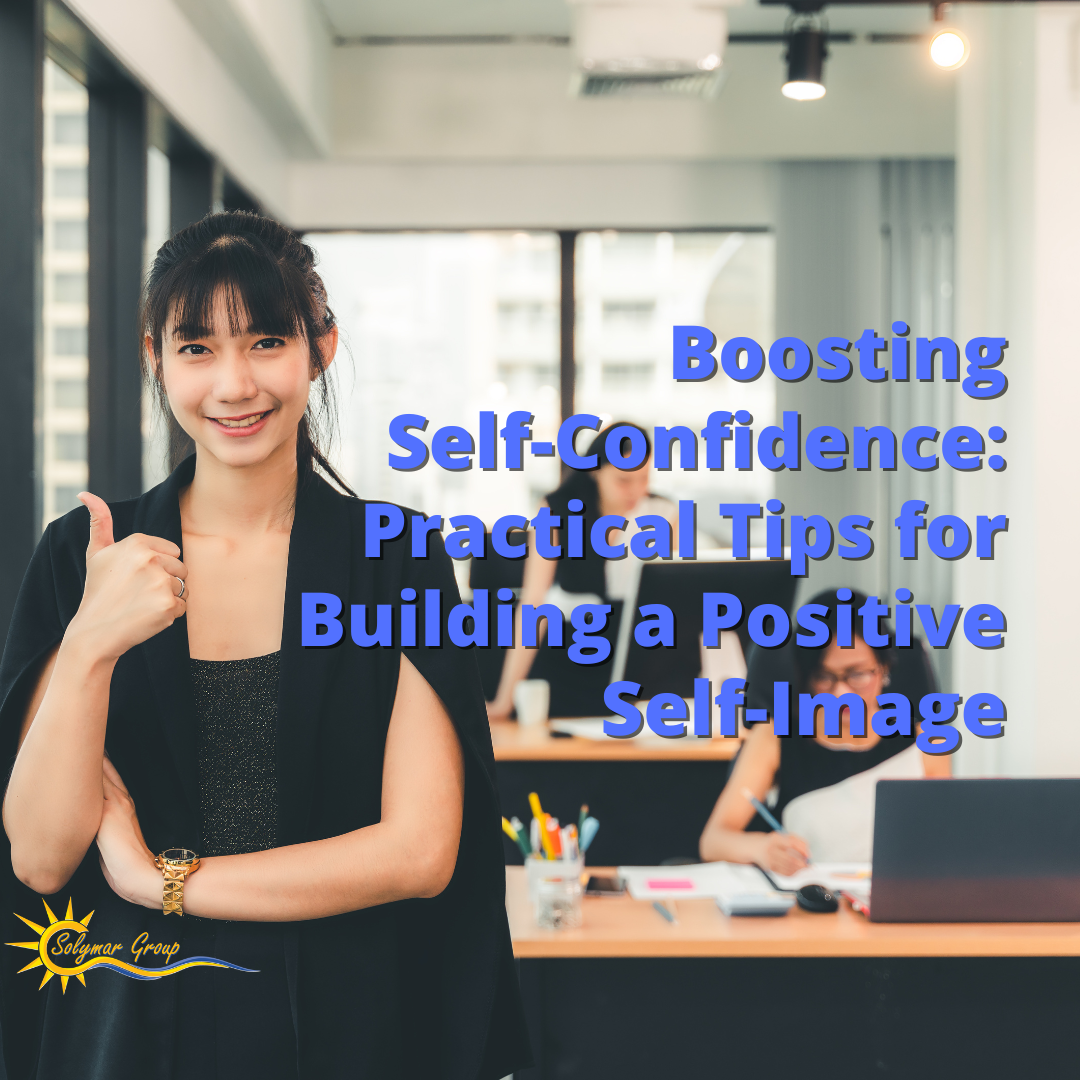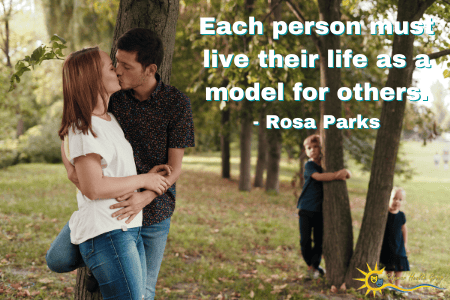 Having a positive self-image and strong self-confidence is essential for our overall mental well-being. It allows us to navigate through life's challenges with resilience and achieve our goals. However, many individuals struggle with self-doubt and low self-esteem, which can hinder personal growth and happiness.
Having a positive self-image and strong self-confidence is essential for our overall mental well-being. It allows us to navigate through life's challenges with resilience and achieve our goals. However, many individuals struggle with self-doubt and low self-esteem, which can hinder personal growth and happiness.
In this article, we will explore practical tips and strategies to boost self-confidence and develop a positive self-image.
1. Practice Self-Care
Self-care plays a crucial role in building self-confidence. Taking care of your physical and mental well-being shows self-respect and reinforces a positive self-image. Make time for activities that bring you joy and relaxation, such as exercising, meditating, or engaging in hobbies you love.
Regular exercise has been shown to improve mood and boost self-confidence. Engaging in physical activity releases endorphins, which are known as "feel-good" hormones. Additionally, taking care of your physical health by eating nutritious meals and getting enough sleep can positively impact your overall well-being and contribute to a positive self-image.
Source: Healthline
2. Set Realistic Goals
Setting achievable goals is an effective way to boost self-confidence. When setting goals, it's important to break them down into smaller, manageable tasks. This approach allows you to track your progress and celebrate your accomplishments along the way, reinforcing a sense of achievement and enhancing your self-esteem.
Setting unrealistic goals can lead to disappointment and a sense of failure, which can undermine your self-confidence. Instead, focus on setting specific, measurable, attainable, relevant, and time-bound (SMART) goals. This framework helps you create realistic expectations and increases your chances of success.
Source: Psychology Today
3. Challenge Negative Thoughts
Our thoughts greatly influence how we perceive ourselves. Negative self-talk can be damaging to our self-confidence and self-image. Learning to identify negative thoughts and replacing them with positive and realistic affirmations can significantly improve self-confidence.
One effective strategy is to keep a journal and write down negative thoughts as they arise. Once you have identified these thoughts, challenge their validity. Ask yourself if there is evidence to support these negative beliefs. Often, you will find that these thoughts are distorted or unfounded.
Replace negative thoughts with positive affirmations. Remind yourself of your strengths, talents, and past successes. Over time, this practice can rewire your thinking patterns and boost your self-confidence.
Source: Mind
4. Surround Yourself with Positive People
The company we keep has a significant impact on our self-confidence. Surrounding yourself with supportive and positive individuals can uplift and encourage you, enhancing your self-confidence.
Seek out friends, family members, or mentors who believe in your abilities and support your personal growth. Engage in conversations that are uplifting and inspiring. By surrounding yourself with positivity, you create an environment that nurtures your self-confidence.
On the other hand, it's important to limit contact with people who bring negativity and drain your energy. Negative influences can undermine your self-confidence and reinforce self-doubt. Choose to spend time with people who uplift and motivate you instead.
Source: Verywell Mind
5. Embrace Failure as a Learning Opportunity
Fear of failure often holds us back from taking risks and pursuing our dreams. However, failure is a natural part of the learning process and an opportunity for growth. Embracing failure and viewing it as a stepping stone towards success can significantly boost your self-confidence.
When faced with failure, take the time to reflect on the experience. Identify lessons learned and areas for improvement. By reframing failure as a learning opportunity, you shift your perspective and develop resilience. Remember that even highly successful individuals have experienced failures along their journey.
Source: Psychology Today
6. Practice Self-Compassion
Being kind to yourself and practicing self-compassion is essential for building self-confidence. Treat yourself with the same understanding and empathy you would show a friend facing similar challenges. Acknowledge that nobody is perfect, and it's okay to make mistakes and learn from them.
Practice self-compassion by engaging in positive self-talk. Replace self-criticism with self-encouragement and self-acceptance. Treat yourself with kindness and understanding, especially during times of difficulty or failure. Embracing self-compassion fosters a positive self-image and enhances self-confidence.
Source: Greater Good Magazine
7. Seek Professional Help if Needed
If low self-confidence persists and significantly impacts your daily life, consider seeking professional help. Therapists and counselors can provide valuable guidance and support in developing a positive self-image and overcoming self-doubt.
Professional support can help you explore the root causes of your low self-confidence and provide effective strategies to overcome it. Therapists may use techniques such as cognitive-behavioral therapy (CBT) or other evidence-based approaches to help you build self-confidence and improve your overall well-being.
Source: NHS
8. Cultivate Positive Relationships
Building and nurturing positive relationships can significantly impact your self-confidence. Surrounding yourself with individuals who appreciate and support you can create a sense of belonging and enhance your self-worth.
Invest time and effort into fostering meaningful connections with friends, family, and colleagues. Engage in activities together, share experiences, and communicate openly. Positive relationships provide opportunities for personal growth and reinforce your value as an individual.
Source: American Psychological Association
9. Celebrate Your Achievements
Take the time to acknowledge and celebrate your achievements, no matter how small they may seem. Recognizing your successes reinforces a positive self-image and boosts self-confidence.
Keep a journal where you record your accomplishments and milestones. This practice allows you to reflect on your progress and appreciate your growth over time. Celebrate your achievements by treating yourself to something you enjoy or sharing your successes with supportive individuals in your life.
Source: Positive Psychology
10. Practice Visualization and Positive Affirmations
Visualization and positive affirmations can be powerful tools in building self-confidence. Take a few minutes each day to visualize yourself as a confident and successful individual. Imagine yourself accomplishing your goals and facing challenges with resilience.
Incorporate positive affirmations into your daily routine. Repeat positive statements about yourself, such as "I am capable", "I believe in myself", or "I am worthy of success." Engaging in these practices helps rewire your subconscious mind and reinforce a positive self-image.
Source: National Center for Biotechnology Information
Building self-confidence takes time and effort, but with patience and consistent practice, it is possible to develop a positive self-image. Remember to be kind to yourself throughout the process and celebrate your progress along the way.
By implementing these practical tips and strategies, you can gradually boost your self-confidence and experience a greater sense of empowerment and fulfillment in your life.
Remember, building self-confidence is a journey unique to each individual. Embrace the process, be patient with yourself, and celebrate every step forward.
For additional resources and information on boosting self-confidence, visit our website's resources section.
Hashtags: #SelfConfidence #PositiveSelfImage #SelfCare #RealisticGoals #PositiveThoughts #SelfCompassion #ProfessionalHelp #Achievements






